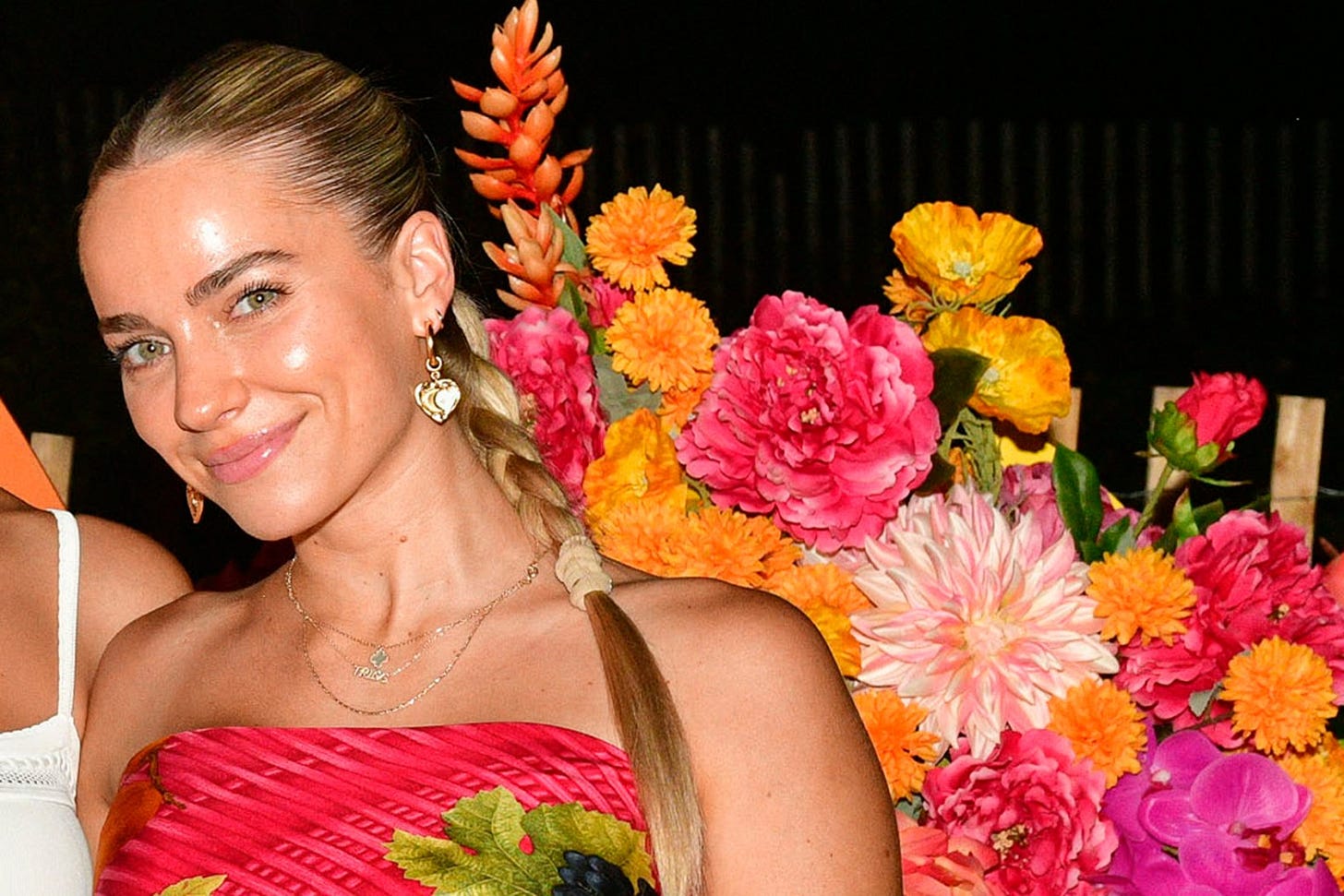On Sunday, Trigg Kiser, the three-year-old son of mega-popular mom influencer Emilie Kiser, died after a drowning incident. It was an unspeakable tragedy – and the intensely parasocial way the internet reacted to it was unlike anything I’ve ever seen before. I wrote about it for Rolling Stone – let’s get into it.
When the drowning incident happened on May 12, it was reported on local Arizona news channels and the outside of the house was shown. Viewers recognized it as belonging to Kiser. Almost immediately, TikTok was ablaze with rumors that the boy who had drowned was Kiser’s son. People posted videos comparing footage from the news report to Zillow listings of Kaiser’s house, insisting that the boy who drowned must have been her son. There were tearful videos where creators prayed for Trigg’s wellbeing and others where people redoubled their investigative efforts to prove that Trigg was the boy who had drowned. TikTok creators pointed to the fact that Kiser (and many of her close friends who are also influencers) hadn’t posted in days.
On Monday, news reports confirmed that Trigg had died. Seemingly instantaneously, online sleuths dug for proof of the boy’s passing, even going as far as posting screenshots from the Maricopa County Office of the Medical Examiner confirming his death. That didn’t surprise Brandon Harris, a professor of social media analytics and production at the University of Alabama who studies parasocial relationships. “For better or worse, these content creators are public figures and celebrities at this point,” he says. “We can debate the limit of what the expectation of privacy should be but they have primarily made their wealth by making their lives accessible to other people.” And fans seem to expect that access even in the wake of unimaginable tragedy.
There was also an outpouring of grief on social media, as viewers and fans struggled to understand the death of a boy with whom they had formed such a parasocial bond. They had watched Trigg grow up, their videos and captions lamented, and now he was gone. Creators posted videos of themselves sobbing onto the camera. One video with hundreds of thousands of views offered the Kiser family a place to stay if they wanted to leave Arizona. Another account, which has now been deleted, posed as Emilie posting a tribute to her late son. “Social media collapses the distance between viewers and the person on the other side of the screen. The tragedy becomes so much more than just a family’s grief or a community’s grief when millions of people are now grieving with you,” Rauchberg says. “And that’s not always a good thing. We don’t actually know this family.”
There’s so much more to this story, which I hope you read in full here but I’ll leave you with this –
Because of the response to the Kiser family tragedy, one mom creator with hundreds of thousands of followers is taking a break from posting on social media and is even debating quitting altogether despite the benefits from an influencing career. “Having a following can be a creative outlet and a monetary blessing for sure, but the cost is your privacy and your peace. No amount of money is worth that. The money you can make from social media is not worth this. Everything that happens to you, good or bad, will be dissected by the internet. Nothing is worth your privacy and your peace.”






This story truly broke my heart. I didn’t even realize she was an influencer until someone mentioned it on IG. When I heard what happened, I held my three-year-old a little longer, a little tighter. It’s absolutely heartbreaking. This family deserves peace, prayers, and privacy as they navigate such an unimaginable loss.
This story is not only the most tragic one I've heard but also the most sickening. The Kiser's live in my town and people were driving by their house to see what was going on. Seeing people try to monetize the situation was unfortunately expected but I was still shocked at how parasocial it truly has been. I was most put off by the posts saying "when one mom cries, we all do." Because how have people managed to make something so devastating about them? I'll never understand and it makes becoming an influencer seem like a cautionary tale.